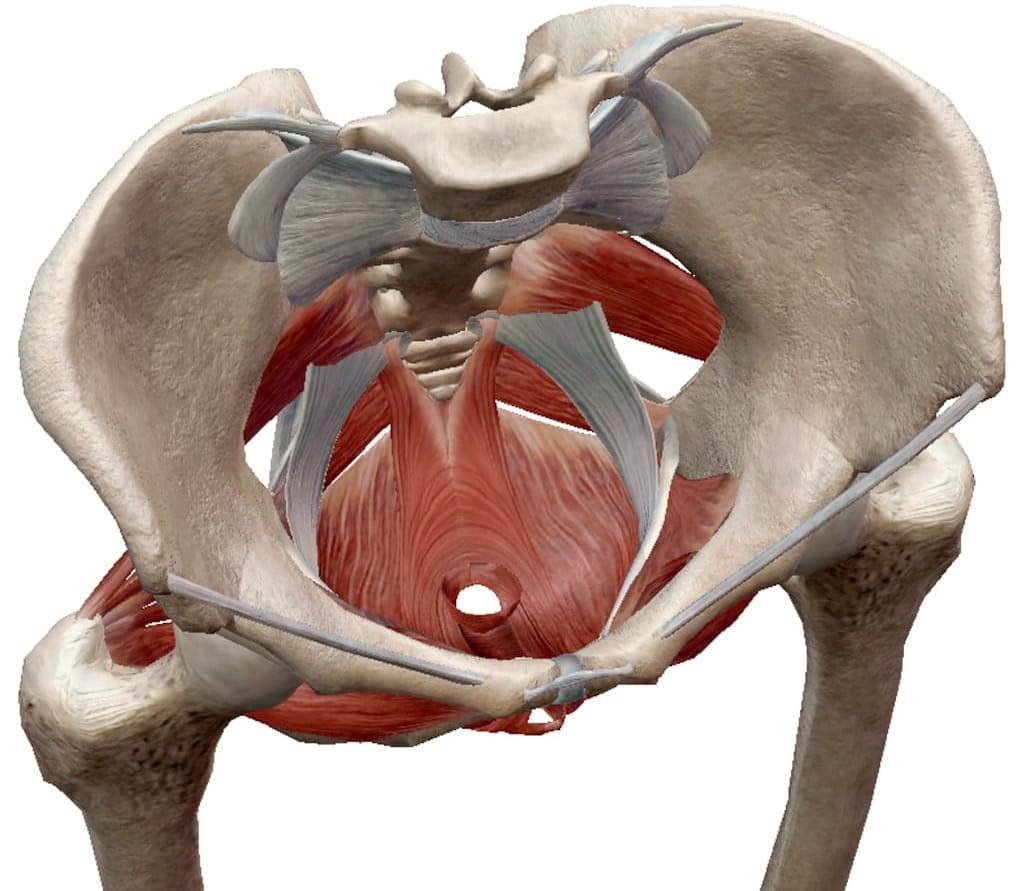Pelvic floor issues are more common than you might think, but they often go undiagnosed due to the sensitive nature of the symptoms. The pelvic floor muscles play a vital role in supporting the bladder, bowel, and reproductive organs. When these muscles weaken, become too tight, or are injured, it can lead to a range of uncomfortable and often disruptive symptoms. Understanding whether you’re experiencing pelvic floor dysfunction is the first step toward finding effective treatment. In this article, we will outline the signs and causes of pelvic floor problems and discuss treatment options available at Simply Physio in Knoxville, TN.
Common Signs and Symptoms of Pelvic Floor Issues
- Urinary Incontinence
One of the most well-known signs of pelvic floor dysfunction is urinary incontinence, which can occur in different forms. Stress incontinence is when urine leaks during activities like coughing, sneezing, laughing, or exercising, due to weakened pelvic floor muscles. Urge incontinence is the sudden and intense need to urinate, which may be accompanied by leakage. Both types indicate that your pelvic muscles may not be supporting your bladder properly. - Pelvic Pain or Pressure
Persistent pain or pressure in the pelvic area, lower back, or genitals can be a sign of pelvic floor dysfunction. This discomfort may increase when sitting for long periods or during activities such as intercourse or using the bathroom. Pelvic floor tightness or spasms can contribute to this chronic pain, leading to discomfort that disrupts daily life. - Bowel Issues
People with pelvic floor problems often experience bowel control issues, including constipation or difficulty passing stool. A weakened pelvic floor can make it harder to relax and coordinate the muscles required for bowel movements. Additionally, some individuals may experience fecal incontinence, where they lose control over their bowel movements, indicating that the pelvic muscles aren’t functioning as they should. - Painful Intercourse
For women, painful intercourse (dyspareunia) can be a significant indicator of pelvic floor dysfunction. This pain may occur due to muscle tightness, scarring, or pelvic organ prolapse. If pain or discomfort persists during or after intercourse, it could be a sign that your pelvic muscles are not functioning properly. - Pelvic Organ Prolapse
Pelvic organ prolapse happens when one or more of the pelvic organs (bladder, uterus, or rectum) descend into or outside of the vaginal canal due to weakened pelvic floor muscles. Symptoms include a sensation of pressure, fullness, or bulging in the vagina, difficulty with urination or bowel movements, and a feeling that something is “falling out” of the vagina. Pelvic organ prolapse is often associated with pregnancy, childbirth, or aging, but it can occur at any stage of life.
What Causes Pelvic Floor Dysfunction?
Pelvic floor dysfunction can develop for a variety of reasons. Some of the most common causes include:
- Childbirth: The strain of childbirth, particularly during a vaginal delivery, can weaken or stretch the pelvic floor muscles. This can lead to incontinence, pelvic organ prolapse, and other symptoms.
- Chronic Straining: Straining from chronic constipation or heavy lifting can weaken the pelvic floor over time, contributing to dysfunction.
- Surgery: Surgeries like a hysterectomy can damage the pelvic floor muscles or nerves, leading to weakened support for the organs.
- Aging: As we age, our muscles naturally weaken, and the pelvic floor is no exception. This can result in bladder control issues or prolapse in older adults.
- High-impact activities: Sports that involve running, jumping, or heavy lifting can place extra stress on the pelvic floor muscles, potentially leading to dysfunction.
- Obesity: Excess weight can strain the pelvic floor muscles, contributing to issues like incontinence or prolapse.
How Is Pelvic Floor Dysfunction Diagnosed?
If you’re experiencing symptoms of pelvic floor dysfunction, it’s important to consult a healthcare professional who specializes in this area. At Simply Physio in Knoxville, our pelvic floor specialists will perform a thorough evaluation to determine the cause of your symptoms. This may include a physical exam, pelvic muscle strength assessment, and diagnostic tools like ultrasound or biofeedback to evaluate muscle function. Understanding the root of your pelvic floor issues is essential for creating an effective treatment plan.
Treatment Options for Pelvic Floor Dysfunction
- Pelvic Floor Physical Therapy
Physical therapy is one of the most effective treatments for pelvic floor dysfunction. At Simply Physio, we specialize in pelvic floor rehabilitation, using targeted exercises to strengthen and relax the muscles, improve coordination, and restore proper function. These exercises, known as Kegel exercises, help rebuild muscle strength and improve bladder control. - Biofeedback Therapy
Biofeedback is a technique used to help you become more aware of your pelvic floor muscles. By using sensors to measure muscle activity, biofeedback provides real-time information that can help you learn how to contract and relax your pelvic floor muscles more effectively. - Manual Therapy
Manual therapy involves hands-on techniques to stretch and release tight pelvic muscles, reduce pain, and improve mobility. This can be particularly helpful for those with pelvic pain or muscle spasms. - Lifestyle Modifications
In some cases, making simple lifestyle changes can significantly improve pelvic floor function. This may include adjusting your diet to avoid bladder irritants, maintaining a healthy weight, and incorporating exercises that focus on strengthening your core and pelvic floor. - Surgery
For severe cases of pelvic organ prolapse or incontinence that don’t respond to conservative treatments, surgery may be recommended. Surgical options may include procedures to repair weakened tissues, reposition organs, or install supportive devices.
How Simply Physio Can Help You
At Simply Physio, we understand the sensitive and personal nature of pelvic floor dysfunction. Our team of experts is committed to providing personalized, compassionate care to help you regain control and live a more comfortable, active life. Whether you’re experiencing incontinence, pelvic pain, or other symptoms, our customized physical therapy programs are designed to meet your specific needs and help you achieve long-term relief.
Conclusion
Pelvic floor issues can be frustrating and disruptive, but they are treatable. If you’re experiencing symptoms like urinary incontinence, pelvic pain, or bowel issues, it’s important to seek professional care. With the right diagnosis and treatment, you can improve your pelvic floor function and enjoy a higher quality of life. At Simply Physio in Knoxville, TN, we offer specialized pelvic floor therapy to help you regain control and confidence. Contact us today to schedule an appointment and begin your journey toward better pelvic health.
FAQs on Pelvic Floor Dysfunction
- What are the first signs of pelvic floor dysfunction?
Early signs include urinary incontinence, pelvic pain, and difficulty with bowel movements. - Can pelvic floor issues go away on their own?
Mild cases may improve with lifestyle changes, but more severe issues often require professional treatment like physical therapy. - How long does pelvic floor therapy take to show results?
Results vary, but many patients notice improvement after a few weeks of consistent therapy. - Is pelvic floor dysfunction common after childbirth?
Yes, pelvic floor issues are common postpartum due to the strain of childbirth, but physical therapy can help restore muscle function. - How can I strengthen my pelvic floor muscles?
Kegel exercises and targeted physical therapy are effective ways to strengthen pelvic floor muscles.



